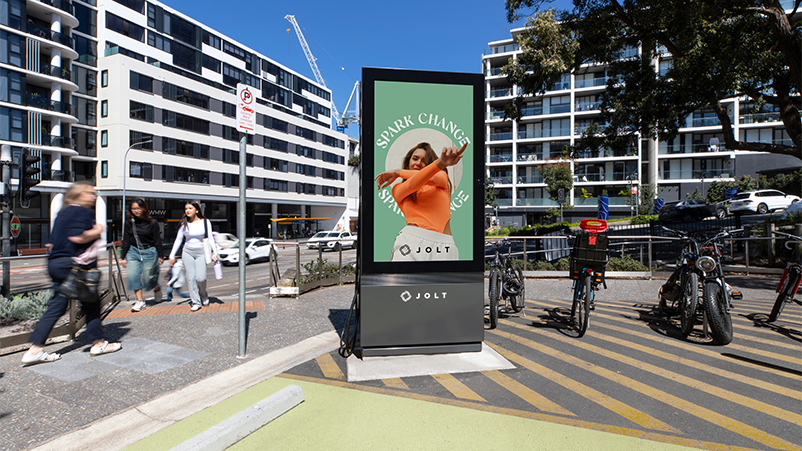‘It’s not a search engine anymore’: Google upends Search with chatbot Gemini, referral traffic down 45% for publishers - brands face similar cliff but tension with government and regulators likely to delay Australian launch

Ricky Sutton: "More and more advertising as a share of total wallet is going to be kept by Google rather than necessarily flowing down to the creators of the content."
UPDATED: Former war correspondent, media-tech commentator and founder of AI video news service Oovvuu, Ricky Sutton, has warned publishers face declines of up to 45 per cent in referral traffic from their organic Google Search listings - and brands will face similar falls. Sutton says Google is running a rapid and "reckless" rollout globally to plug its AI chatbot Gemini into the $46bn search engine. Traditional unsponsored listings in Google’s new “AI Overview” search function are displaced for Gemini-generated answers, packaged in a conversational tone but dominate “almost the entire first page of a search query”, says Sutton. That squeezes non-sponsored links out of user sight. Sutton, who has shot to international repute with his regulatory analysis on big tech, says Google Search becomes an “answers engine” with a “conversational response" crafted by chatbot Gemini. "This is a huge change,” Sutton says although “as far as I can tell, Australia is the only country in the world that doesn’t have it at the moment”. An ACCC interim report due in September on the Australian search market and contentious negotiations around the Federal Government’s Media Bargaining Code might have something to do with it.
Like all things with big tech it has benefits for the consumer but it has a bigger benefit for Google. That's generally the way it usually works. We’re seeing 40 per cent to 45 per cent decrease in referral traffic for publishers
What you need to know:
- Google has launched its new AI-powered format for search – organic links are now displaced further down the page, out of sight to users while its AI generated conversational narrative dominates.
- Publishers and brands can expect 40-45 per cent declines in referral traffic based on early analysis overseas, according to Future Media’s Ricky Sutton
- He says it will siphon more revenue into Google’s owned platforms.
- Australia is likely to be the only country in the world still to see the new search service launch – the ACCC’s interim report into search, due in September, and the Federal Government’s media bargaining code are possible explanations, per Sutton and UNSW Business School’s Professor of Practice and principal of Data Synergies, Peter Leonard.
- AI Overview turns Google into a publisher because its AI Engine, Gemini, makes recommendations, per Sutton. That means, for the first time, it is liable for the content it carries. Section 230 of the US Federal Communications Decency Act gives platforms immunity from what others publish on their platforms. US tech giants have used Section 230 as a proxy for how they have operated in global markets.
- But already Google’s AI Overview is under fire for wayward advice – recommending glue be added to pizza to keep the cheese on the base and eating rocks for nutrients.
- “It's very reckless to have rolled it out as comprehensively and as fast as it has,” per Sutton
- Indago Digital boss Gary Nissim thinks if publishers – any website owner actually – block AI scrapers from ingesting their content, Google’s Large Language Model “stops learning and loses relevance. Is Google going to have to build or acquire publishers?”
- Per Sutton: “We're at the dawn of a fairly chaotic period, I really don't know which way it's going to go.”
Organic gone?
Google could be about to do to organic search what Facebook did a decade ago to organic social – essentially strangle it.
Google has been quietly trialling its AI Overview search format in international markets for the past year, culminating this month with the giant US market following the UK and Europe as some users land its new format when they punch in a query.
The impact of a full-scale rollout is massive on two fronts, says Ricky Sutton, the name behind the Future Media substack newsletter: it turns Google for the first time into a publisher, with all the risks and liability of a publisher producing accurate, verified information, and dramatically cuts the referal traffic that publishers and brands get from organic search links.
40-45% referral traffic lost
“It’s not a search engine anymore, it’s an answers engine,” Sutton told Mi3 in a podcast yesterday with industry peers debating the ACCC’s interim report on data products and services, released last week. “This isn't just a little change. This is a huge change. This is a tune change that says that when you make a query to the platform or to Google Search, instead of giving you a list of links back to go and find what you were looking for, it will write you the answer. And that answer will take up almost the entire first page of the search query.”
Sutton said it’s a new revenue lever for Google. “Like all things with big tech it has benefits for the consumer but it has a bigger benefit for Google. That's generally the way it usually works. We’re seeing 40 per cent to 45 per cent decrease in referral traffic for publishers. But it's also going to have an impact on the marketing space because Google's now going to generate far more traffic or advertising opportunities on its own and operated platform, google.com. Because many of the queries are going to be responded to there on that platform, which means that more and more advertising as a share of total wallet is going to be kept by Google rather than necessarily flowing down to the creators of the content.”
We’re likely to stop Google scraping or crawling our websites - then its source dries up and the LLM stops learning and loses relevance. Is Google eventually going to have to build or acquire publishers?
No immunity
And for Sutton, Google’s move no longer makes it a platform, killing the immunity it has under Section 230 of the US Federal Communications Decency Act which negates responsibility for any content published by others through its services. Section 230 has served as global proxy in many markets for how platforms like of Google and Meta operate.
Sutton said the moment Google starts making AI recommendations “it's a publisher at that point, it's actually publishing the content itself as much as a journalist would be if they wrote the story.”
But already the new AI Overview rollout is copping heat, recommending glue be added to pizza to keep the cheese on the base and eating rocks for nutrients. Google is crimping it’s AI Overview results in higher risk categories like health-related issues but Sutton is bewildered tech companies continue to move fast and break things – and apologise later.
Reckless
“How have we managed to get ourselves to a situation where we're trying to police misinformation after the event instead of prior to the event?” he said on the MI3 podcast. “The entire publishing industry has worked for almost a century or half a century we've had laws that say you can't publish certain things because they are damaging to people and damaging to reputations. But we seem to have now moved into a world where let's just figure it out and then we'll fix it after the event. That doesn't make sense. You don't go and apologise for robbing a bank and say, 'sorry about that. Just let me off. I was having a bad day'. It doesn't work. I'm actually addressing the UN on this on Thursday and the specific question is 'how do we cope in a situation where a Google response is contemptuous to an ongoing court case?' Who do we sue? And if the court case has to end, who do we deal with? And the important thing is contempt is a criminal issue.
"So if you are the boss of the company that commits that contemptuous behaviour, okay, then the CEO goes to jail. This means that Google is no longer a platform, it's a publisher. And that means that Section 230 provides no protection. That becomes super interesting. So I think that we're at the dawn of a fairly chaotic period, I really don't know which way it's going to go but I think it's very reckless to have rolled it out as comprehensively and as fast as it has. The repercussions of it will be felt by the media industry, but I think they're going to be felt by Google more.”
Australian stand-off
But for all the action globally from Google, an Australian launch so far has not materialised for its circa $5bn search business here. Sutton suspects it is linked to the risk of further fuelling tension with the Australian government. “It's in fights with lots of governments all over the world. But here in Australia, we kind of live in the future on this stuff. And when I travel a lot, people always ask me about what Australia is doing, because we're ahead of the game. But I just think that, for the sake of the $5 billion that they generate here in Australia, they don't need to make the fight worse.”
Fellow podcast panelist, UNSW Business School’s Professor of Practice and Principal at Data Synergies, Peter Leonard, said it could also be linked to an upcoming ACCC report on the search market in Australia.
Ricky speculated that maybe there was a reason why Google was not rolling out this feature in Australia for the time being. Well, the timing is interesting, isn't it?
“We know that the ninth [ACCC] interim report [of the Digital Platforms Inquiry], due out on 30 September will cover, well, let me just quote: ‘The ACCC will revisit potential competition and consumer issues arising from the supply of general search services in Australia. Our report will focus on general search services that consumers use to navigate the Internet and search for information on a range of themes’.
"Ricky speculated that maybe there was a reason why Google was not rolling out this feature in Australia for the time being. Well, the timing is interesting, isn't it?”
Stop the AI scraping
The managing director of specialist search agency Indago Digital, Gary Nissim, said it was difficult to get a read on the impact here of Google’s changes because it was still to land but SEO traffic had “been dropping for years. AI Overview will ensure this trend continue exponentially.”
Nissim posits two core questions many will now be asking:
“Why would a publisher like Mi3 let an LLM [large language model] like Gemini [Google’s AI engine] scrape your content to use in AI Overview or any other curated result if you receive no traffic and little recognition for it? [Editor’s note: we’re working on it]. Why would a business like mine, that writes high quality content primarily focused on driving SEO traffic, continue to do so if that content doesn’t drive clicks and sales?
“We’re likely to stop Google scraping or crawling our websites - then its source dries up and the LLM stops learning and loses relevance. Is Google eventually going to have to build or acquire publishers – they already have YouTube – or do we have to go back to the conversation around them remunerating publishers for use of their content?”
Good points. The second question?
“If AI Overview stops sending publishers traffic – most websites are publishers in some sense – or publishers stop letting Google use its content, then how do we all make up for that loss in traffic and revenue? If we want to continue to invest and see value in SEO we’ll need to measure it differently with a focus on impressions within the curated results, whether that be AI overview or not.
“Times are changing and Generative Search is the biggest shift since the inception of “search’. At least we have access to other markets where it’s more advanced so we can prepare for it effectively.
“Google is always playing around with how it displays results. Some of these tests last months and some turn into permanent features. AI Overview seems to be a rushed feature and I’m keen to see how it will evolve over the coming months.”



